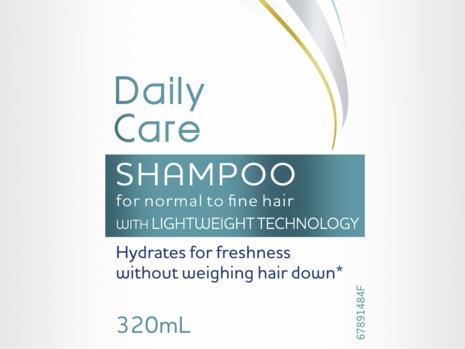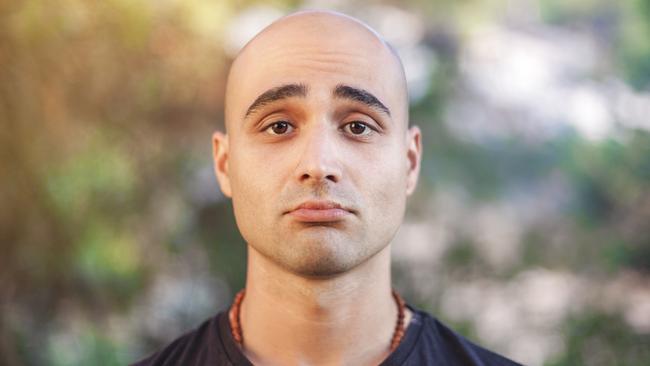Seriously mate, this isn’t normal anymore
With the word “normal” banned from some shampoo bottles to “tackle harmful norms and stereotypes”, won’t someone be truly inclusive and think of people without hair, writes Mike O’Connor.
Mike O'Connor
Don't miss out on the headlines from Mike O'Connor. Followed categories will be added to My News.
HOW long before “thanks, mate,” “g’day mate” and “no worries, mate” are consigned to the linguistic scrap heap?
They are, after all, hugely presumptive. In all likelihood the person you are addressing is a total stranger – an Uber driver, a sales assistant, a bar attendant – and not your mate. They may find the suggestion that you in some way share a friendship to be offensive. They might find it hurtful.
Are you in some way preaching the doctrine of equality and saying that we are all mates or are you suggesting that you would like to be their specific mate? Does this constitute an unsolicited and unwanted advance? Are there sexual undertones inherent in the use of the word “mate,” a subliminal suggestion that what you really have in mind is to mate intimately?
Is it possible that some people might also find the greeting threatening and an invasion of their private space. “Who,” they may well ask, “is this person and what right have they got to call me their mate?”
Should they be white and male, are they asserting their privilege with their assumption that they can call you mate or were more sinister forces at work and was there more than a hint of sarcasm in their pronunciation of the word “mate?”
There could well have been, indicating that what they really meant was “you don’t really think that someone like you could ever be my mate, do you, mate?”
While you tiptoe through this minefield of potential hurt each day a battle to avoid giving offence, you can at least find some solace in the knowledge that you no longer have to worry about what sort of hair you have.
The word “normal” to describe hair has now been erased from some shampoo bottles which is wonderful news for all those people who have felt excluded, hurt and offended because they didn’t have normal hair.
More people have straight hair rather than curly hair so I can see how the “curlies” of this world would feel offended for “normal “obviously refers to the “straighties” which infers that people with curly hair are abnormal.
(Disclaimer: I have straight hair although not as much of it as I’d like but some of my best friends have curly hair, honestly!)
Normal, meaning that most commonly found, is an insult to members of those minorities who through an accident of birth, have been born into this world with un-normal hair.

Is it not enough that they have to bear this cross through life without being constantly reminded of it every time they walk down a supermarket aisle? It fails the inclusivity test. Were sufficient research to be undertaken, it would doubtless find that people with “normal” hair tended to have higher paying jobs than those with abnormal hair, revealing society’s underlying follicle-based discrimination.
Had “normal” not been banned, it would have been but a matter of time before people took to the streets in their banner-waving thousands chanting “abnormal hair matters!”
The London-based conglomerate that has banned normal says it did so to “tackle harmful norms and stereotypes” and good on them, I say. It has, however, failed to address the concerns of those who, once more through no fault of their own, are somewhat challenged in the matter of follicles.
These are the people, and I am trying to be as gentle and inoffensive as possible here, who are as bald as a billiard ball. You can only imagine how they feel when they walk down the supermarket aisle on their way to buy a tube of toothpaste and are confronted with row upon row of shampoos.

Suddenly they feel the cold chill of exclusion for their days of buying shampoo are but a distant memory. It’s all very well for the hirsute majority to breeze through the self-serve checkout waving their bottles of shampoo carefully labelled to avoid “harmful norms and stereotypes” but what about the bald people?
Where’s the shampoo for them? If we are going to have inclusion, and we must lest we be accused of lacking a social conscience or even worse, of being “un-woke,” then we must have a shampoo which has been specifically developed for people with no hair. Nothing less will do.
The advertising industry is now a shining example of inclusion for television advertisements now feature a dazzling array of skin tones, hair types and facial features. In the space of 30 seconds the viewer is swept around the world as black, white and brown faces flash across the screen lest the exclusion of a single ethnic group from an ad for washing powder trigger accusations of discrimination.
I don’t know about you mate, if I can call you that and I mean it in the nicest possible way, but I think the world has been taken over by wankers.



